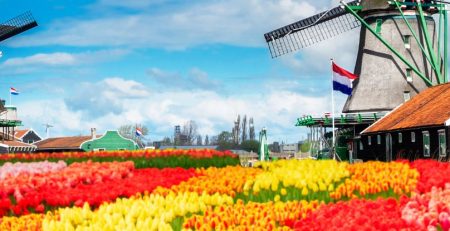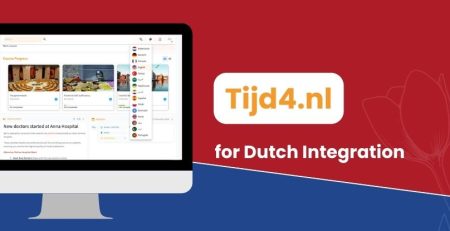Integration in the Netherlands: A step-by-step guide
tijd42025-05-20T17:05:16+00:00Moving to a new country is exciting but can also be challenging. If you are new to the Netherlands, you may need to integrate. Integration in the Netherlands means learning Dutch, understanding how to live and work here, and eventually taking an exam. This process helps newcomers become part of Dutch society.
How long do you have to integrate?
The integration period in the Netherlands lasts three years. During this time, you must follow a learning track and take exams. You can always check Mijn Inburgering to see what steps you need to take and when to start your integration.
Integration under the 2021 Civic Integration Act
If you need to integrate under the 2021 law, DUO will send you a letter. This letter confirms that you must integrate. However, you will only receive this letter if you have:
- a burgerservicenummer (BSN),
- a residence permit,
- and also you are registered with a municipality.
Once these steps are complete, DUO will send the letter within eight weeks. If you do not receive it after eight weeks, contact DUO for assistance.
The Broad intake and personal plan
After getting the letter, the municipality will invite you for an interview and a test. This test checks what you already know. Together, they are called the broad intake.
Based on this, the municipality creates a Personal Integration and Participation Plan (PIP). This plan outlines your learning track and the exams you need to take.
Learning tracks for integration
There are three learning tracks in the Netherlands. Your track depends on your background and future goals.
1. B1 Track
The B1 track prepares you for work in the Netherlands. Within three years, you will take language exams at level B1. If B1 is too difficult, you may take exams at A2 level instead. Additionally, you must complete knowledge exams. Your PIP or Mijn Inburgering will list the required exams.
2. Education Track
This track is for young people who want to study in the Netherlands. It prepares them for vocational education (MBO), higher education (HBO), or university. In this track, you will learn Dutch up to level B1 and take required knowledge exams.
3. Self-Reliance Track
This track is for those who find the B1 or education tracks too difficult. You will learn Dutch at level A1 and gain knowledge about Dutch society. You can take a language exam, but it is not required. However, you must complete knowledge exams. At the end of this track, the municipality will interview you.
Integration under the 2013 Civic Integration Act
If you integrate under the 2013 law, you will also receive a DUO letter. Once you receive the letter, your integration period starts. Like the 2021 law, you must have a BSN, a residence permit, and be registered with the municipality. It can take up to eight weeks to receive the letter.
The key difference is that under the 2013 law, you only need to pass exams at A2 level. You can study independently or take a course to pass the inburgering exam.
Voluntary integration
Some people choose to integrate voluntarily. This is not required but can be helpful. For example, voluntary integration can help if you want to become a Dutch citizen or apply for a stronger residence permit.
Steps for a smooth integration
Your integration process depends on your situation. Here are some key steps to follow:
- Check if you need to integrate.
- Wait for your DUO letter.
- Complete your broad intake and receive your PIP.
- Follow your learning track and prepare for exams.
- Take the required exams.
Already have a diploma?
If you have a diploma from your home country, you can apply for an international credential evaluation (IDW). This is free for most people in the integration process. It helps Dutch employers understand your education level.
If you studied but do not have a diploma, you can apply for an Indicatie Onderwijsniveau (Indication of Educational Level). This document helps compare your education to the Dutch system.
Start early in an asylum seeker center (AZC)
If you live in an asylum seeker center (AZC), you can start participating in Dutch society before integration officially begins.
Tijd4.nl Can Help!
Integration in the Netherlands can be a long and challenging journey. However, the right tools and resources make it easier. Tijd4.nl supports you in this process with multilingual learning modules on Dutch language, culture, healthcare, finances, and more. Start your integration journey with Tijd4.nl today!



